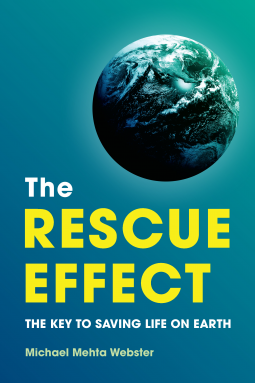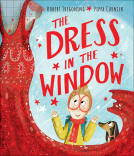
The Rescue Effect
The Key to Saving Life on Earth
by Michael Mehta Webster
This title was previously available on NetGalley and is now archived.
Send NetGalley books directly to your Kindle or Kindle app
1
To read on a Kindle or Kindle app, please add kindle@netgalley.com as an approved email address to receive files in your Amazon account. Click here for step-by-step instructions.
2
Also find your Kindle email address within your Amazon account, and enter it here.
Pub Date Oct 11 2022 | Archive Date Oct 11 2022
Talking about this book? Use #TheRescueEffect #NetGalley. More hashtag tips!
Description
As climate change continues to intensify, the outlook for life on Earth often seems bleak. Yet hope for the future can be found in the “rescue effect,” which is nature’s innate ability to help organisms persist during hard times. Like a thermostat starting the air conditioning when a room gets too warm, the rescue effect automatically kicks in when organisms are stressed or declining.
In The Rescue Effect, Michael Mehta Webster reveals the science behind nature’s inherent resilience, through compelling stories of species that are adapting to the changing world—including tigers in the jungles of India, cichlid fish in the great lakes of Africa, and corals in the Caribbean. In some cases, like the mountain pygmy-possum in the snowy mountains of southeast Australia, we risk losing species without intensive help from people. As observers to—and the cause of—species declines, we must choose whether and how to help, while navigating challenging questions about emerging technologies and the ethics of conservation actions.
Ultimately, Webster argues that there are good reasons to expect a bright future, because everywhere we look, we can see evidence that nature can rescue many species from extinction; and when nature alone is not up to the task, we can help. Combining rigorous research with gripping storytelling, The Rescue Effect provides the cautious optimism we need to help save life on Earth.
Advance Praise
"...a realistic action plan built on hope." —Booklist (Starred review)
"Socially conscious readers wanting to avoid doomsday environmental messaging will likely appreciate this one." —Library Journal
"...a realistic action plan built on hope." —Booklist (Starred review)
"Socially conscious readers wanting to avoid doomsday environmental messaging will likely appreciate this one." —Library Journal
Available Editions
| EDITION | Other Format |
| ISBN | 9781643261492 |
| PRICE | $28.00 (USD) |
| PAGES | 296 |
Average rating from 4 members
Featured Reviews
In a changing world, species are disappearing at alarming rates, but many have remarkable ways to sustain life, through adaptation or intervention. This book follows a handful of different animals on the brink of extinction and considers how people and other animals are helping or harming their chances of survival.
I appreciate that this book is conscious of its scientific language and never hesitates to explain things in at least one way, often more, to make sure that no reader is left behind. It deals with some complicated topics, but I never feel left in the dark. I learned so much from this book, not the least of which being that opossums and possums are actually completely different creatures. Amazing. While I've always been interested in conservation, this book has inspired me to look closer at the many amazing creatures both near me and across the globe. I have hope that there will be a way to save some of them, if not all.
Thank you to NetGalley and the publisher for this ARC. All opinions are my own.
 Kasia K, Educator
Kasia K, Educator
What is "the rescue effect"? What processes contribute to it? We live in an era of extinction. Never before the changes in biodiversity had occurred as fast as now. However, extinction is a natural occurrence. As the author says: "scientists estimate that more than 99 percent of the species that have ever lived are now extinct". I didn´t know that. This doesn't sound bad, right? Well, hear this: "we are currently losing about 200 species a year as a result of human activity". This is scary! and I don´t care that it´s in fact only a 0.01 percent loss of global species yearly, it´s still way too much! This should not be happening at all! and yet the author looking at the numbers says that the extinction rate is... actually quite slow because the rescue effect is working for most of the other organisms. In other words, we aren't as effective killers as we thought. Could we do better? Please, don't answer that.
The book talks us through different ways how the rescue effect works for different animals. When and how we should give them a hand?
Definitely, it´s a thought-provoking book. And yet I am going to stick with the traditional point of view believing that we should protect nature more firmly and limit the significant human impact on it. Nature is smart, but I still think that it needs our help. And if we won´t do something very fast and on a huge scale... then God helps us all.
Readers who liked this book also liked:
Sage Rountree; Alexandra DeSiato
Health, Mind & Body, Nonfiction (Adult), Religion & Spirituality
















